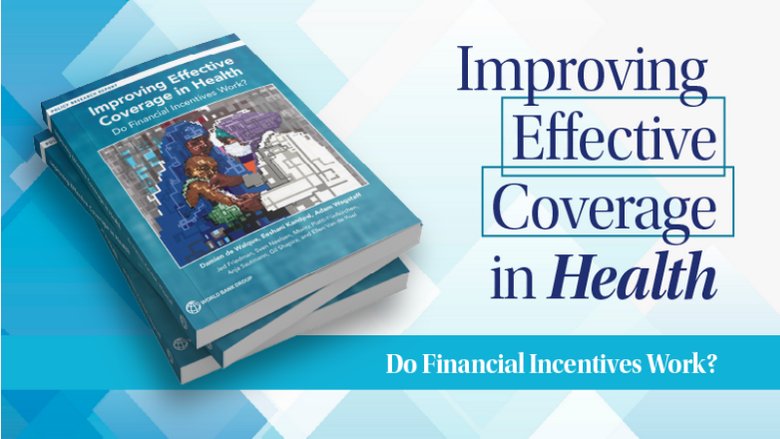Resources
Overview: | | |
Full Report: |
Press Release: English | |
Policy Research Talk: Watch the recording
Presentation: | | |
Article in BMJ Global Health:
Blog Posts:
- London School of Economics (September 26, 2022):
- Let's Talk Development (February 15, 2023):
About the Report
In many low- and middle-income countries, health coverage has improved dramatically in the past two decades, but health outcomes have not. As such, effective coverage��a measure of service delivery that meets a minimum standard of quality��remains unacceptably low. Improving Effective Coverage in Health: Do Financial Incentives Work? examines one specific policy approach to improving effective coverage: financial incentives in the form of performance-based financing (PBF), a package reform that typically includes performance pay to frontline health workers as well as facility autonomy, transparency, and community engagement.
This Policy Research Report draws on a rich set of rigorous studies and new analysis. When compared with business-as-usual, in low-income settings with centralized health systems PBF can result in substantial gains in effective coverage. However, the relative benefits of PBF��the performance pay component in particular��are less clear when it is compared with two alternative approaches, direct facility financing, which provides operating budgets to frontline health services with facility autonomy on allocation, but not performance pay, and demand-side financial support for health services (that is, conditional cash transfers and vouchers). Although PBF often results in improvements on the margins, closing the substantial gaps in effective health coverage is not yet within reach for many countries. Nonetheless, important lessons and experiences from the rollout of PBF over the past decade can guide health financing into the future. In particular, to be successful, health financing reform may need to pivot from performance pay while retaining the elements of direct facility financing, autonomy, transparency, and community engagement.



